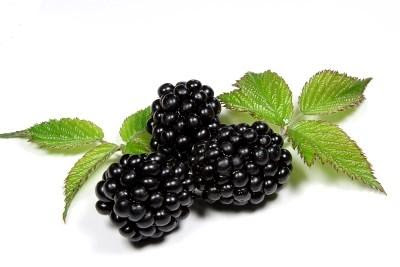 METHOD OF PREPARATION:
METHOD OF PREPARATION: 1. Thoroughly rinse berries, and place them in a heavy pot with just enough water to make them bob. Bring to a slow boil, mash with a potato masher or spoon, bring back to a boil, and remove from the heat. Cool slightly.
2. Pour the mashed berries into a jelly bag or a colander lined with several thicknesses of cheesecloth. Collect the juice in a bowl, and pour it into clean jars as it accumulates. Be careful, because berry juice stains. When the bag or cloth is cool enough to handle, squeeze out all the juice and some of the pulp. Compost what's left.
3. Sweeten to taste with sugar, honey, or other fruit juices (such as pineapple). Under-sweeten, because you can always add more sugar later, but you can't restore lost tartness. At this point you have a concentrate, which can be diluted with 3 to 4 parts water for casual quaffing. Don't dilute it if you want to freeze or can it. Whether frozen or canned, you juice's future might include transformation into home brewed soda, wine, or a warming batch of berry cordials.
4. Freeze your concentrate in ice cube trays or small freezer containers. Or, seal it up in half-pint jars processed in a waterbath canner for 10 minutes. Most berries are naturally acidic, but when canning concentrates from softer fruits like plums, I add a teaspoon of lemon or lime juice per cup, just to be safe

Blackberries are notable for their high nutritional contents of dietary fiber, vitamin C, vitamin K, folic acid - a B vitamin, and the essential mineral, manganese (table).
Nutrients in raw blackberries Nutrient Value per 100 grams % Daily Value
Energy 43 kcal
Fiber, total dietary 5.3 g 21%
Sugars, total 4.9 g
Calcium, Ca 29 mg 3%
Magnesium, Mg 20 mg 5%
Manganese, Mn 0.6 mg 32%
Copper, Cu 0.2 mg 8%
Potassium, K 162 mg 5%
Sodium, Na 1 mg 0%
Vitamin C, total ascorbic acid 21 mg 35%
Vitamin A, IU 214 IU 4%
Vitamin K, µg 20 µg 25%
Folic acid, µg 36 µg 9%
Carotene, beta 128 µg ne
Lutein + zeaxanthin 118 µg ne
ne: Daily Value not established
Blackberries rank highly among fruits for antioxidant strength, particularly due to their dense contents of polyphenolic compounds, such as ellagic acid, tannins, ellagitannins, quercetin, gallic acid, anthocyanins and cyanidins.
Blackberries have an ORAC value (oxygen radical absorbance capacity) of 5347 per 100 grams, including them among the top-ranked ORAC fruits. Another report using a different assay for assessing antioxidant strength placed blackberry at the top of more than 1000 antioxidant foods consumed in the United States.
Nutrient content of seeds
Blackberries are exceptional among other Rubus berries for their numerous, large seeds not always preferred by consumers. They contain rich amounts of omega-3 (alpha-linolenic acid) and -6 fats (linoleic acid), protein, dietary fiber, carotenoids, ellagitannins and ellagic acid.
 Ingredients:
Ingredients:


